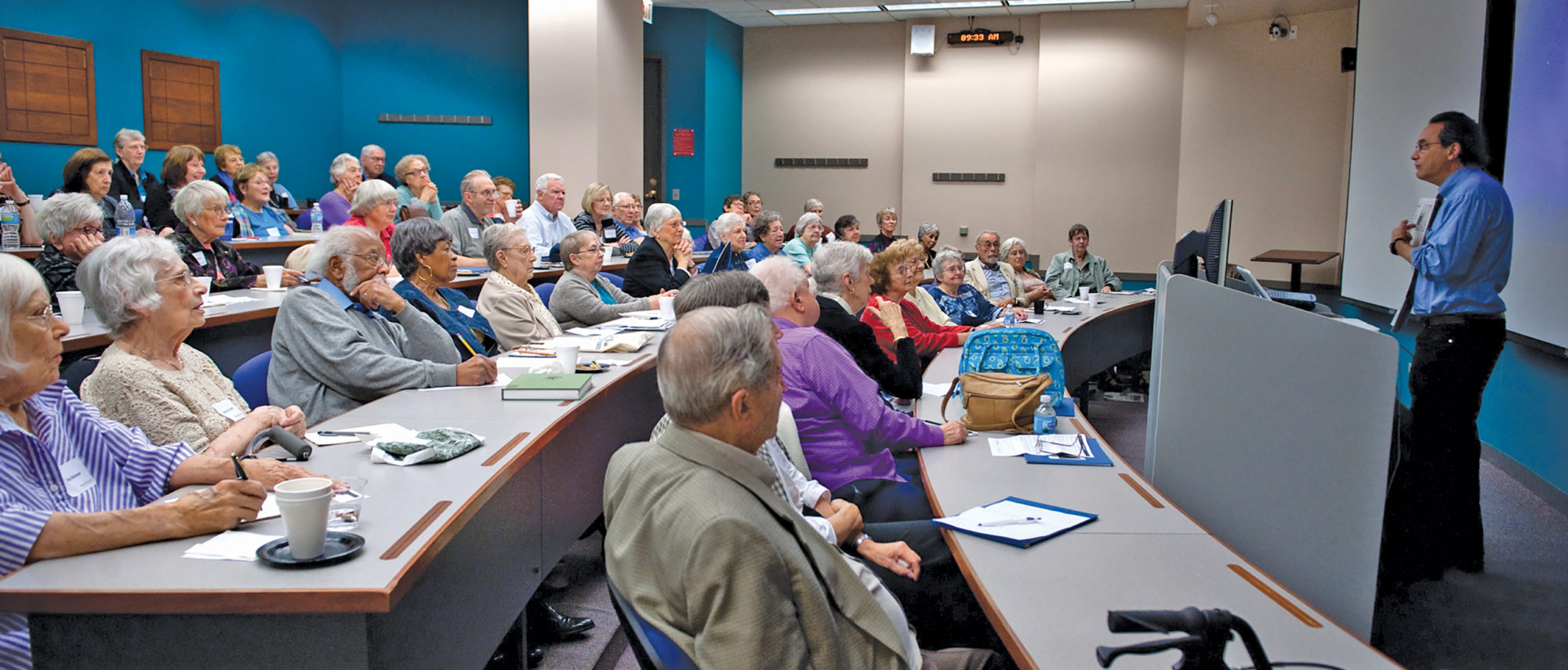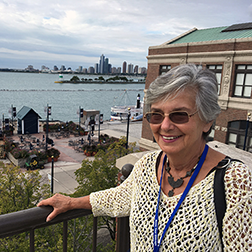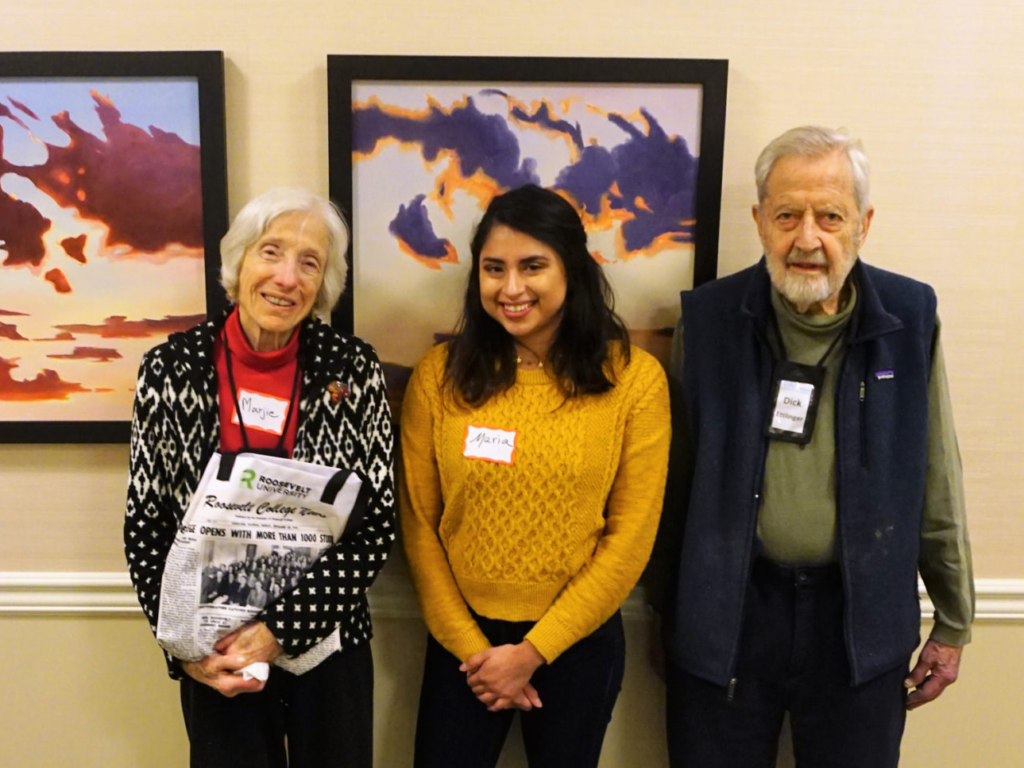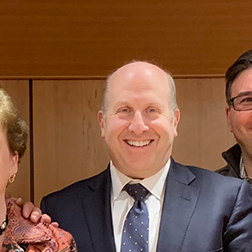Has it ever crossed your mind that you might be bored in retirement?
Why not learn a new language, take music lessons or even get an advanced college degree? Whether you want to acquire a new skill, pursue a new hobby or study a subject of special interest to you, you’ll find that older adults have countless opportunities for lifelong learning. Accept that challenge and you’re likely to enrich your social life, boost your brain power and improve your overall health.
What is Lifelong Learning?
Learning is not confined to a classroom or to a certain stage of life. It can take place throughout life and in countless situations. Besides enhancing employment prospects, ongoing learning enhances personal development, social interactions and citizenship.
Lifelong learning is the voluntary, ongoing pursuit of knowledge—whether for personal or professional reasons.
Many people decide to move to college- and university-related retirement communities “where they can take lifelong learning courses, mentor college students and even get a degree,” The New York Times reported in an article titled “Going Back to School, Without the Pressure.” “As baby boomers retire in large numbers, these communities will experience significant upticks in popularity,” senior-housing expert and George Mason University Professor Andrew J. Carle told The Times. “People want intellectually stimulating environments,” he added.
In a story titled “Why Boomers Are Returning to College,” PBS-TV’s “News Hour” related the story of Ray and Ann Goldwire, who retired to a resort-style community but “quickly grew weary of the activities that absorbed most of the retirees’ days. It was golf, golf, golf, bridge,” Ann Goldwire said. “Ray and I didn’t get along real well there.”
Sadly, it’s not unusual for older Americans to feel isolated from the rest of society when they retire. “We’ve built a lot of really beautiful retirement communities in this country, but unfortunately they are in many ways completely separated from the rest of society. A bird in a gilded cage is still a bird in a cage,” senior housing expert Andrew Carle told PBS.
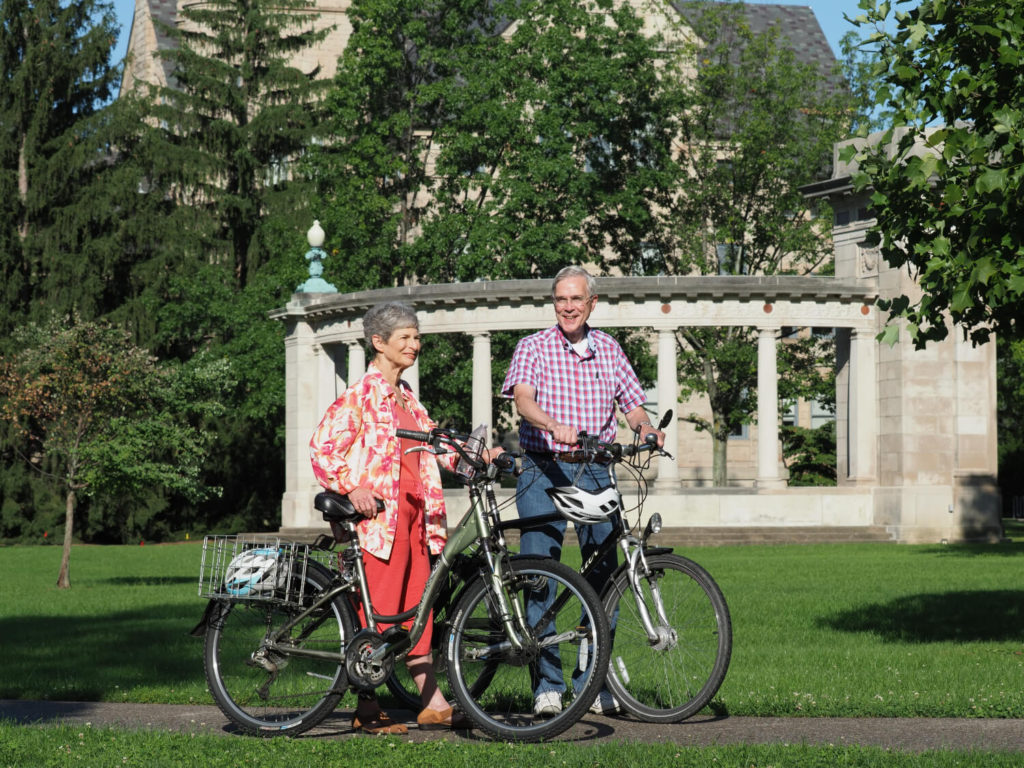
A January 2019 feature article in Inside Higher Ed, titled “Retirees to Embrace Campus Life,” reports on “a growing trend of privately owned retirement communities being built on or near college campuses.” The article notes that “some retirement communities may lease or buy college-owned land, such as Kendal at Oberlin, which has close ties to Oberlin College in northern Ohio, and Vi at Palo Alto near Stanford University.”
Benefits of Learning New Skills Throughout Life
Computerized brain games and other brain-training techniques claiming to prevent memory loss have become big business, but according to NPR’s Morning Edition you might be better off picking up a challenging new hobby. Active aging involves more than moving your body. You also need to move your brain.
The Synapse Project
Dr. Denise Park, a neuroscientist at the University of Texas at Dallas, randomly assigned 200 older people to learn a new skill—either digital photography or quilting. They were compared to a social group who did things like watch movies or reminisce together and to another group of older adults who listened to the music or played easy games and puzzles. Only those who learned a new skill had significant gains. “We found quite an improvement in memory, and we found that when we tested our participants a year later, that was maintained,” Dr. Park said.
“New brain cell growth can happen even late into adulthood,” says Dr. Ipsit Vahia, director of geriatric outpatient services for Harvard-affiliated McLean Hospital. “The process of learning and acquiring new information and experiences, like through structured classes, can stimulate that process.”
Classes can also sharpen your social skills and enhance your self-confidence. “It is easy to become more socially isolated as people grow older,” says Dr. Vahia. “A class makes you interact and communicate with other people on a regular basis through group participation, conversations and discussions.”
Options for Older Learners
AARP has compiled a helpful list of the best colleges for older or returning students, which includes online learning opportunities.
Bringing Generations Together
While Kendal residents and staff clearly benefit from their ties to educational institutions, students who are engaged with residents and staff of Kendal communities also benefit. The involvement of students in Kendal communities spans the spectrum from preschool to artists in residence, graduate-level practicums, research and internships.
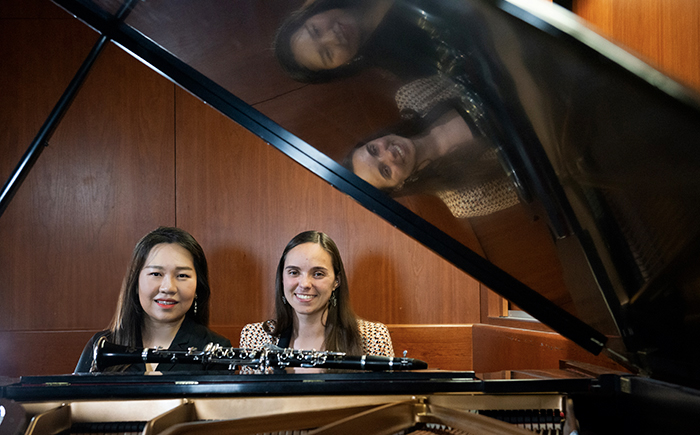
COLLINGTON
Artists-in-Residence Strengthen Intergenerational Partnership Through Music
Two graduate students from the University of Maryland School of Music, Natalie Groom and Ieseul Yoen, lived and worked as artists-in-residence at Collington, A Kendal Affiliate, during the 2019-20 academic year. Over the course of their residency, the musicians performed concerts for residents highlighting works by diverse composers. The musicians also programmed educational workshops to cultivate relationships and deeper interactions between residents, UMD faculty and students.
Both residents and artists found this intergenerational partnership deeply rewarding.
“My time at Collington has been incredibly warm and welcoming,” Natalie said. “I cherish the deep conversations with residents we have over meals, the culture of lifelong learning and the fact that we could all have dinner together without being on our phones.”
Ieseul added that she was “thrilled at the opportunity to spend a year living at Collington surrounded by people who have enjoyed such successful lives.”
Even during the emergence of COVID-19, the community worked to prioritize this program and the relationships between residents of Collington and the musicians. The artists-in-residence’s live performances pivoted to a series of virtual “Mini Music Broadcasts” allowing the community to continue enjoying the music and each other’s company.
KENDAL AT OBERLIN
Generations United
Kendal at Oberlin residents, staff and families are committed to engaging with multiple generations. Residents provide mentoring to those in need, continue in lifelong passions for teaching, act as surrogate grandparents and participate in the on-site Kendal Early Learning Center. In 2012, Kendal at Oberlin’s intergenerational initiatives were designated a Program of Distinction by Generations United, a national organization focused on improving the lives of children, youth and older people through intergenerational programs and public policies.
“Our goal is to connect generations to help strengthen our communities and to help develop healthy communities that engage people at all ages,” says Donna Butts, of Generations United.
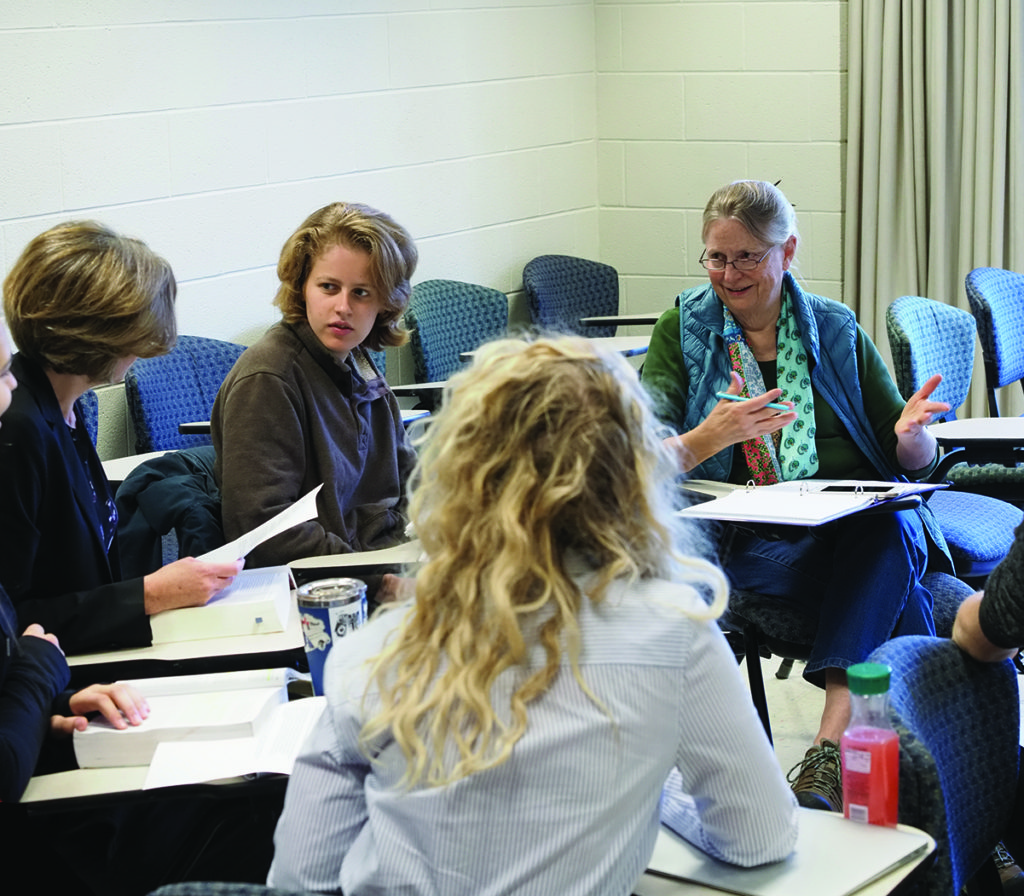
University Partnerships
All of Kendal’s communities, programs and services have relationships with local colleges and universities. In fact, most Kendal communities can trace their origins to initiatives that involved local colleges or universities.
The Kendal University Connection
Because of their shared passion for lifelong learning, Kendal residents, staff and board members became pioneers in establishing ties to leading colleges and universities—including Dartmouth, Oberlin, Cornell, the University of Chicago, Amherst, Smith, LaSalle, the University of Delaware, Virginia Military Institute and Washington & Lee University.
Although the first Kendal communities were developed in the 1970s without any formal college or university ties, retired faculty and alumni from Swarthmore and Haverford colleges and Westtown School were well-represented among early residents. Their interest in lifelong learning and in remaining active in the community helped establish a culture with a natural affinity for college and university relationships. This culture has been transplanted to new Kendal communities, has become more formalized over time and has led to creative, dynamic ties between Kendal and educational organizations.
When a Kendal community is developed, it’s usually because a local group has come to Kendal and said, “We’d like to have a Kendal in our area.” In Ithaca, New York, it was the president of Cornell University. In Hanover, New Hampshire, an English professor at Dartmouth College was involved. And very often colleges and universities have supported the endeavor—sometimes by providing seed money, sometimes by helping to acquire land and almost always by providing faculty and staff to serve on the board.
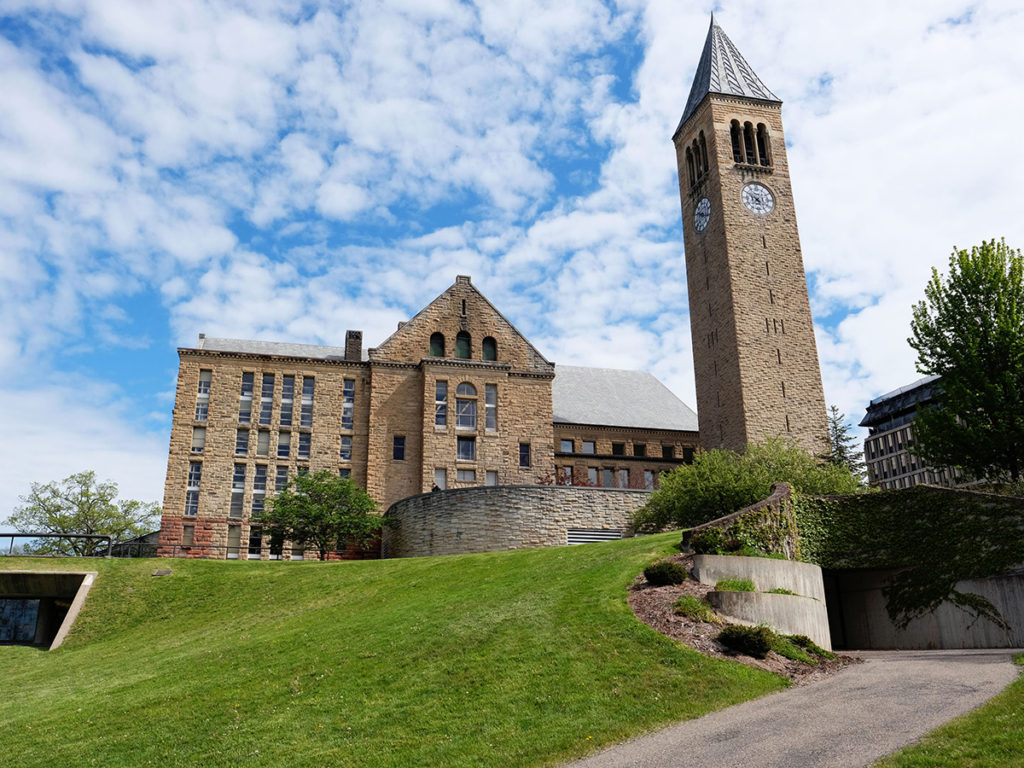
Many Kendal community residents take courses and are instructors in college- and university-sponsored lifelong learning academies. The Osher Lifelong Learning Institute at Dartmouth was created by Dartmouth College with the participation of Kendal at Hanover residents. Several residents teach Osher-developed courses, many of which are offered at Kendal at Hanover.
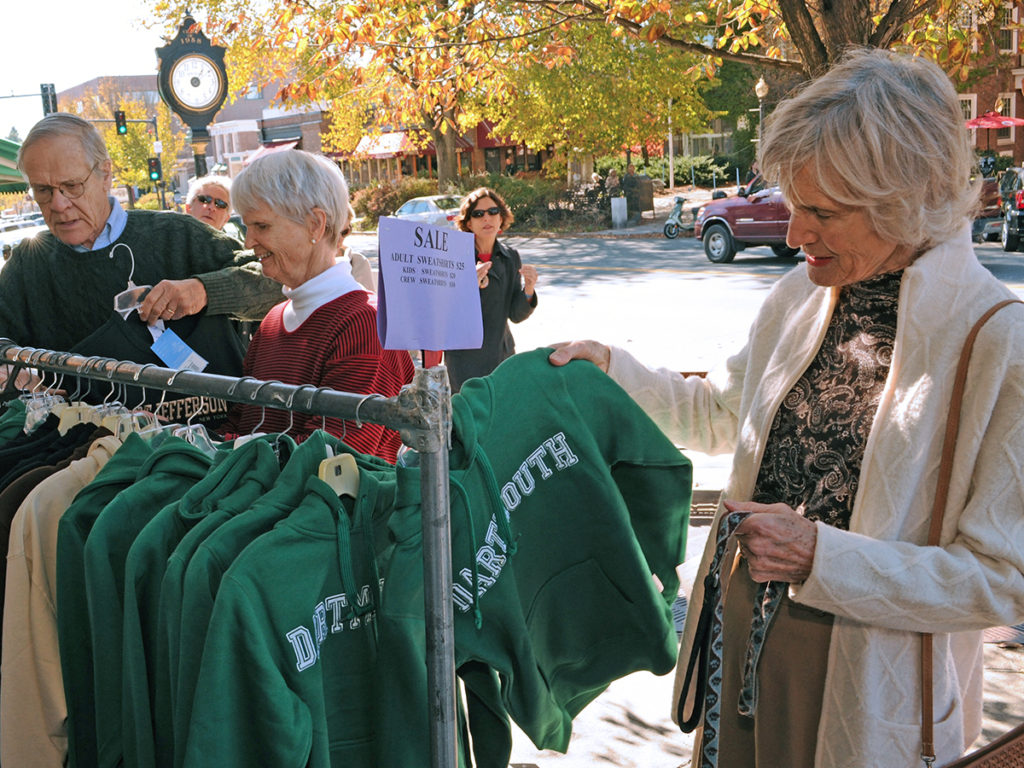
Lathrop (which affiliated with Kendal in 2004) has developed relationships with five colleges that are within a 10-mile radius of its campuses in Northampton and Easthampton, Massachusetts. Lathrop residents can audit courses and take in the many cultural activities on the campuses of Amherst, Hampshire, Mount Holyoke, Smith and UMass Amherst. In addition, Lathrop residents are invited to become members of Five Colleges Learning in Retirement (LIR), an organization that offers seminars on the two Lathrop campuses and on all five college campuses.
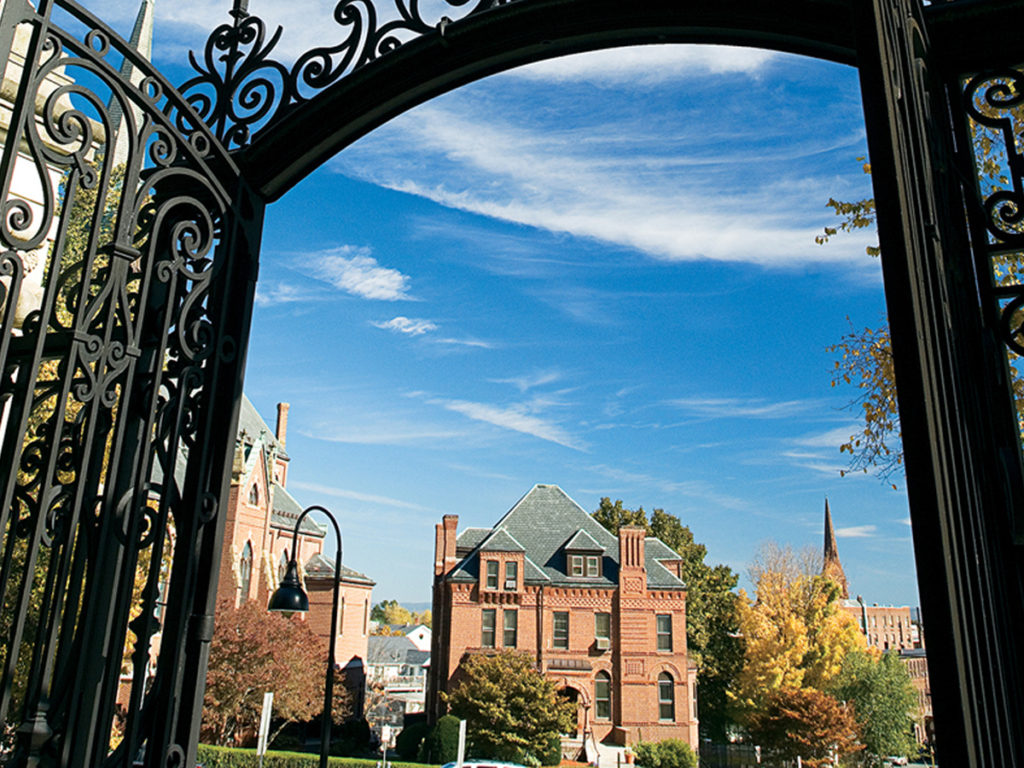
Washington & Lee University (W&L) and the Virginia Military Institute (VMI) are within walking distance of Kendal at Lexington and both offer year-round intellectual and cultural stimulation. Residents audit classes, attend concerts, take in exhibitions and attend athletic events at W&L and VMI. Kendal at Lexington volunteers also participate in research projects conducted by the schools, and residents often serve as jurors for the W&L law school’s moot court.
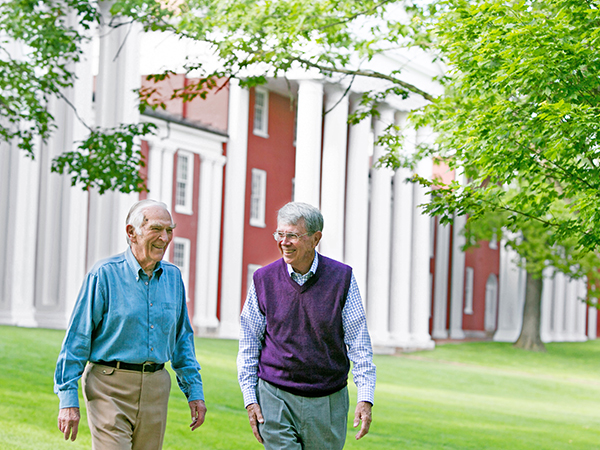
Kendal at Oberlin has relationships with several Ohio colleges and universities, but probably would not have come to fruition without the unstinting support of Oberlin College. The College provided seed money, facilitated the acquisition of land (just a mile from its campus) and arranged for faculty and staff, including the College president, to serve on Kendal at Oberlin’s governing board. Kendal at Oberlin residents can audit, without charge, courses at Oberlin College, and Oberlin faculty present lectures at Kendal. In addition, the Oberlin College Library and other campus resources, including athletic facilities, are open to Kendal at Oberlin residents. Oberlin Conservatory of Music students often bring their dress rehearsals to Kendal because they value the critiques they receive there from knowledgeable and attentive audiences.
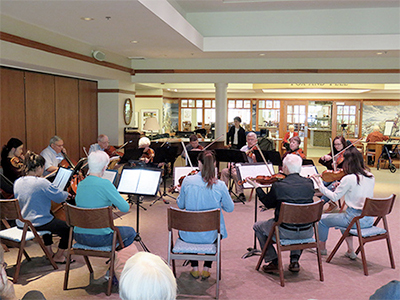
Bringing Living and Learning Together
Kendal is renowned for its mastering of the university partnership according to Senior Hosing News. Hear first-hand how the commitment to lifelong learning has effected residents, staff and students across the Kendal system.

